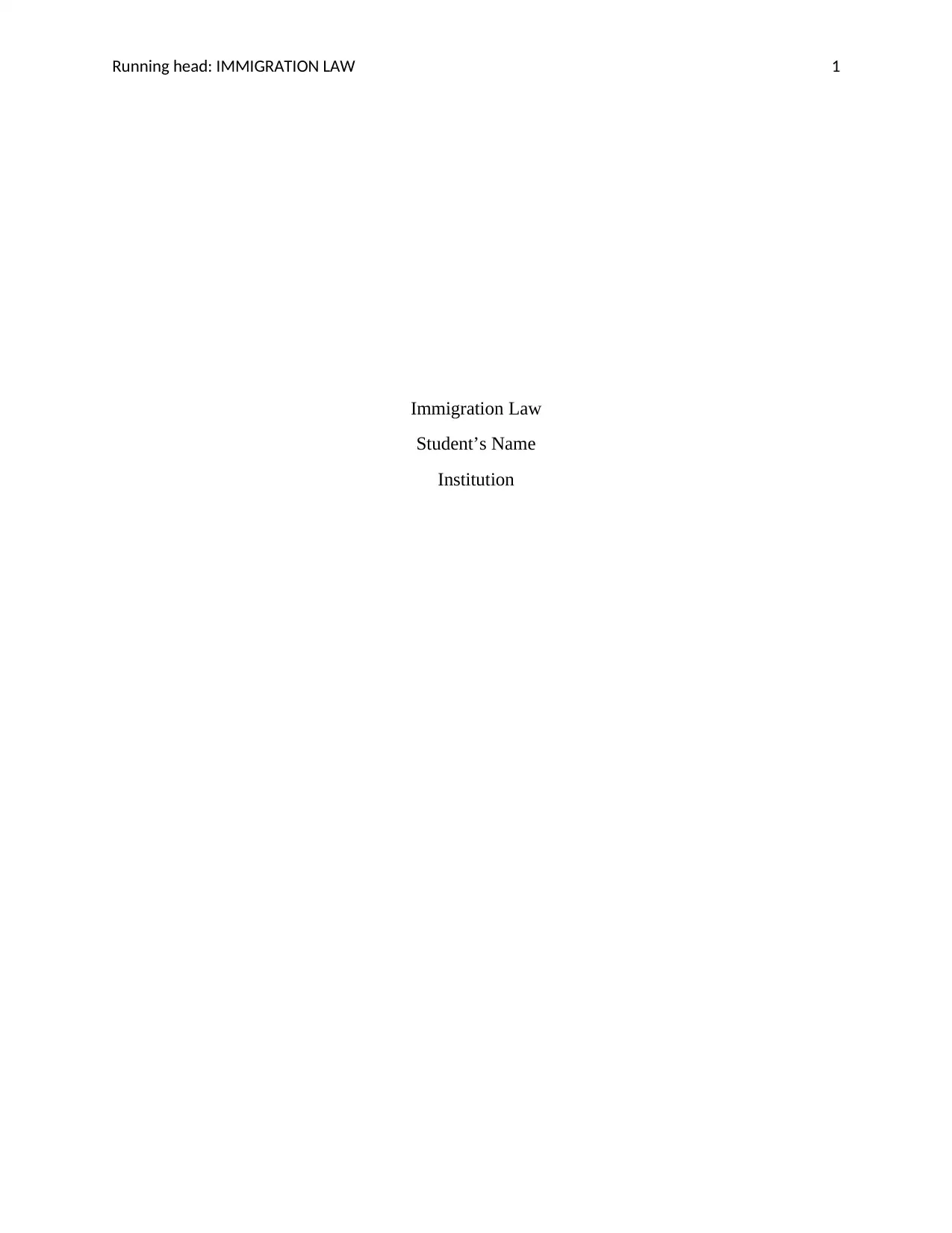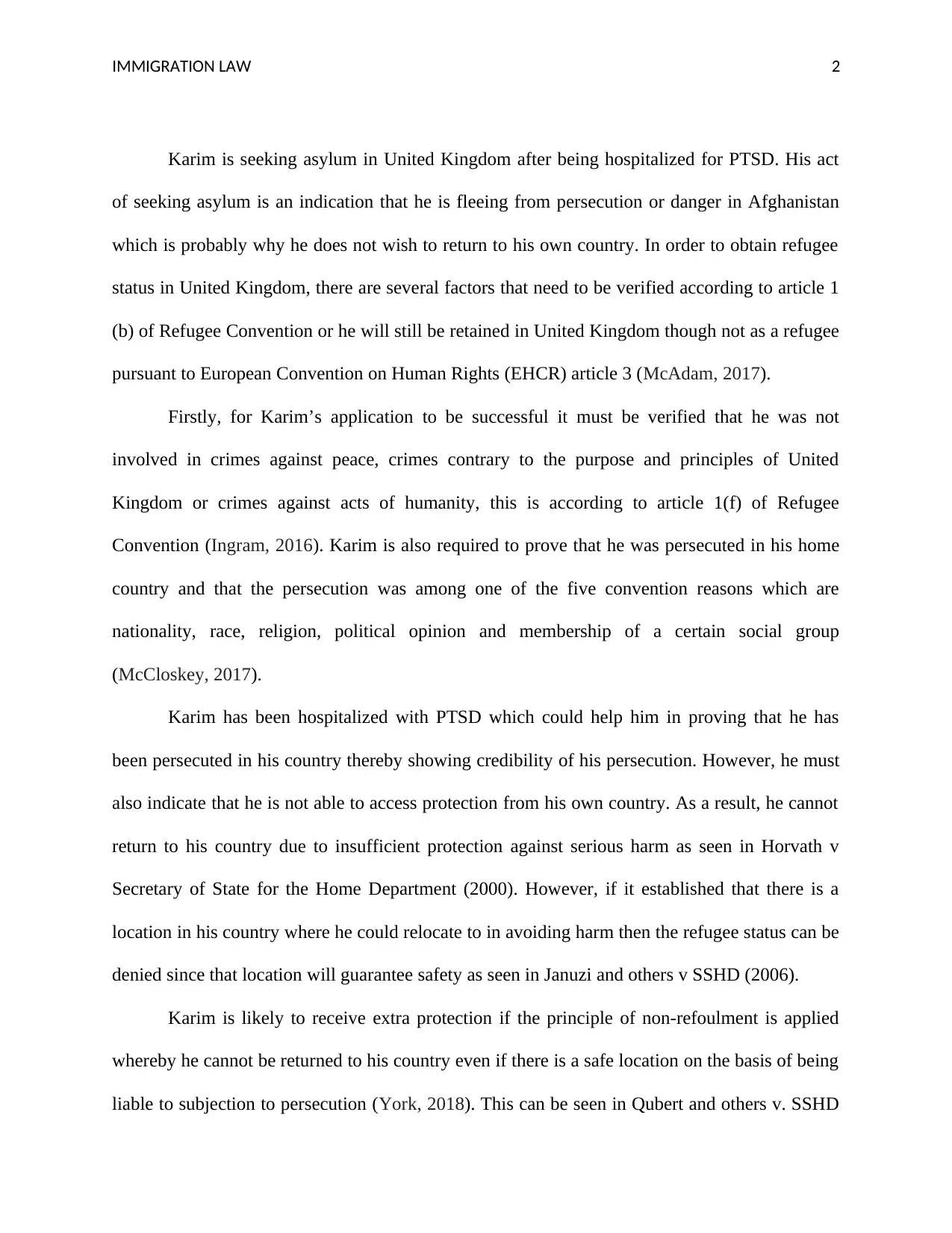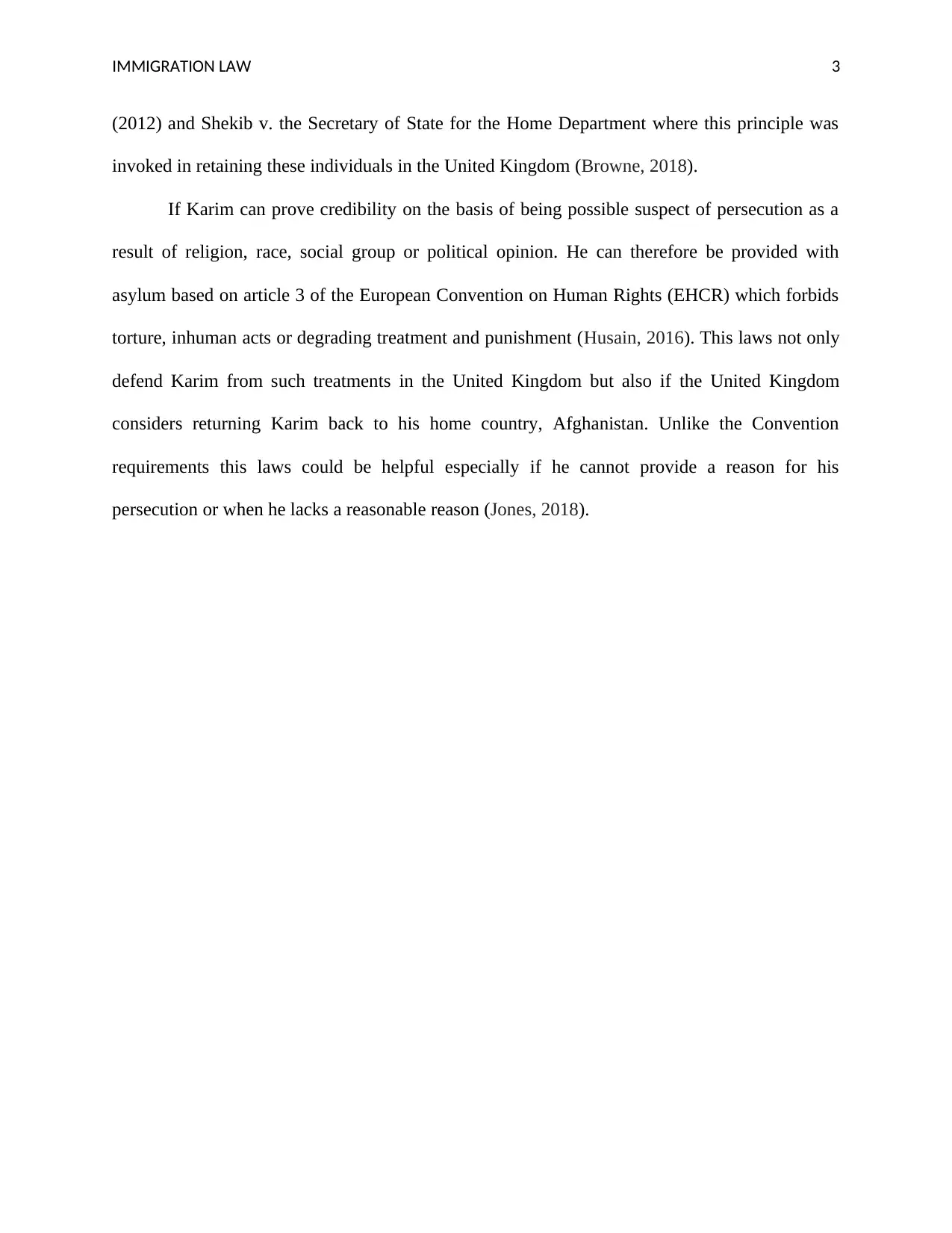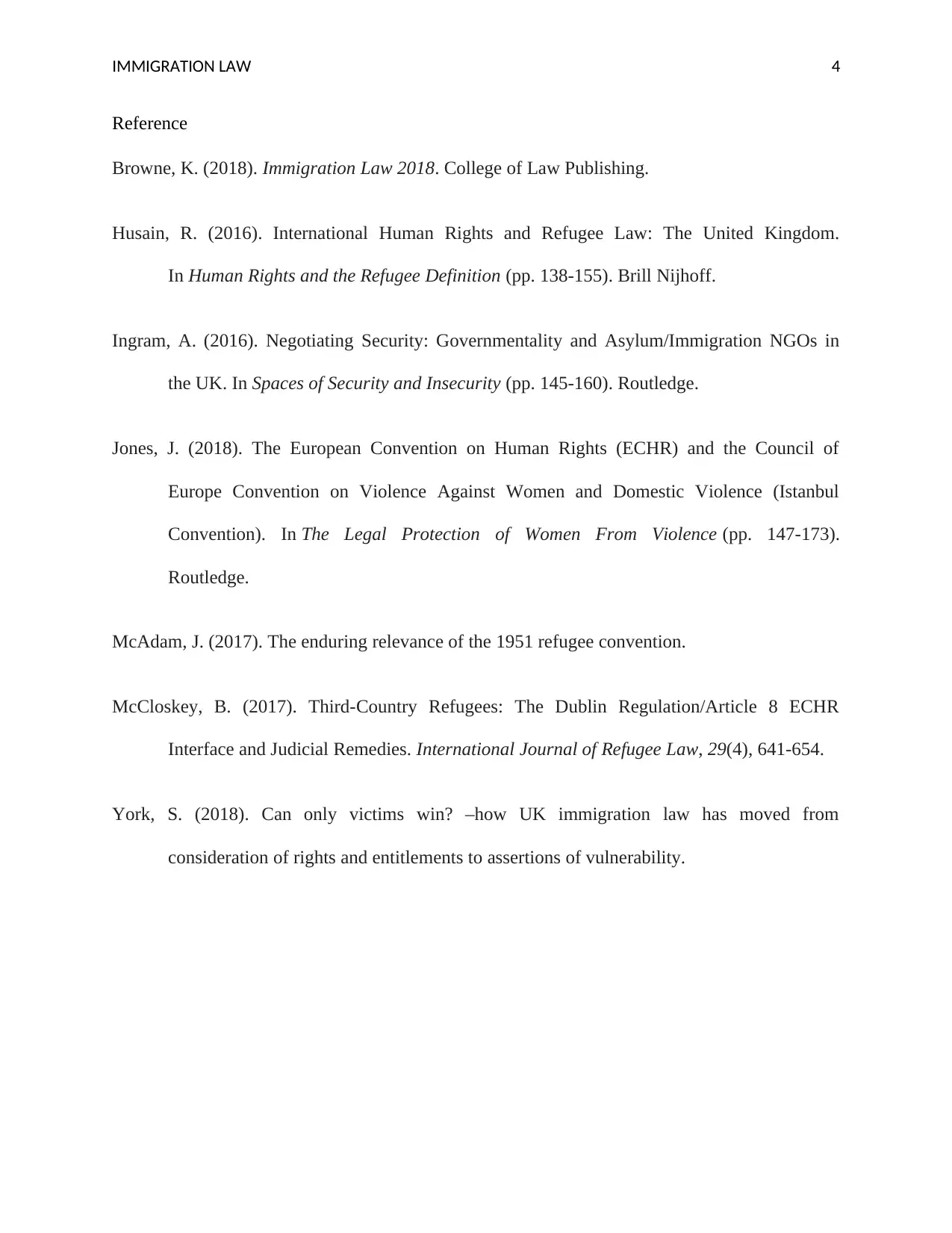Immigration Law: Legal Analysis of Karim's Asylum Application in UK
VerifiedAdded on 2022/09/25
|4
|790
|51
Report
AI Summary
This report analyzes the legal aspects of an asylum application in the United Kingdom, focusing on a case involving an individual named Karim who is seeking asylum after being hospitalized for PTSD. It explores the criteria for obtaining refugee status under the Refugee Convention, including the requirement to prove a well-founded fear of persecution based on race, religion, nationality, membership of a social group, or political opinion. The report discusses the relevance of PTSD in establishing persecution and the importance of demonstrating an inability to obtain protection from one's home country. It also examines the principle of non-refoulment, which prevents the return of an individual to a country where they face persecution, even if a safe internal relocation option exists. Furthermore, the report analyzes the application of Article 3 of the European Convention on Human Rights (ECHR), which prohibits torture, inhuman treatment, and degrading punishment, and its potential role in protecting Karim from removal to Afghanistan. The report references various legal cases to support its arguments, providing a comprehensive overview of the legal considerations in asylum cases and the interplay between the Refugee Convention and the ECHR.
1 out of 4










![[object Object]](/_next/static/media/star-bottom.7253800d.svg)